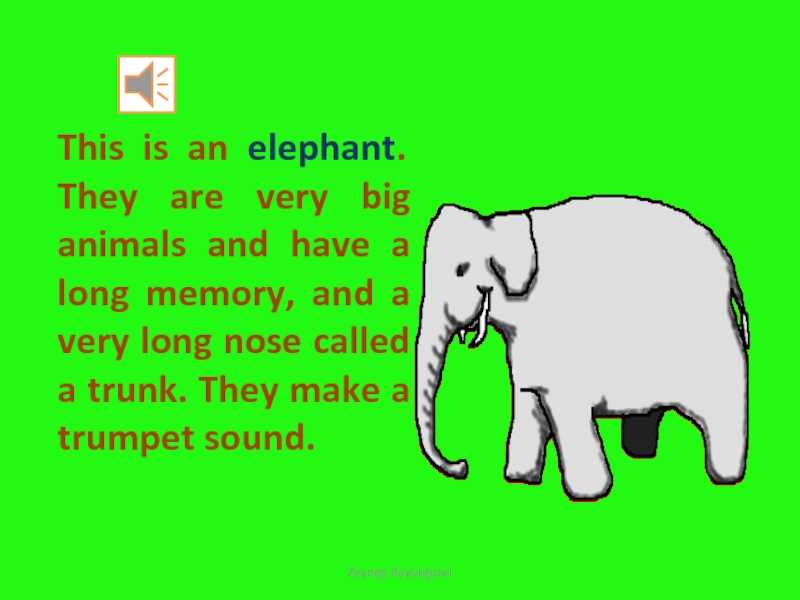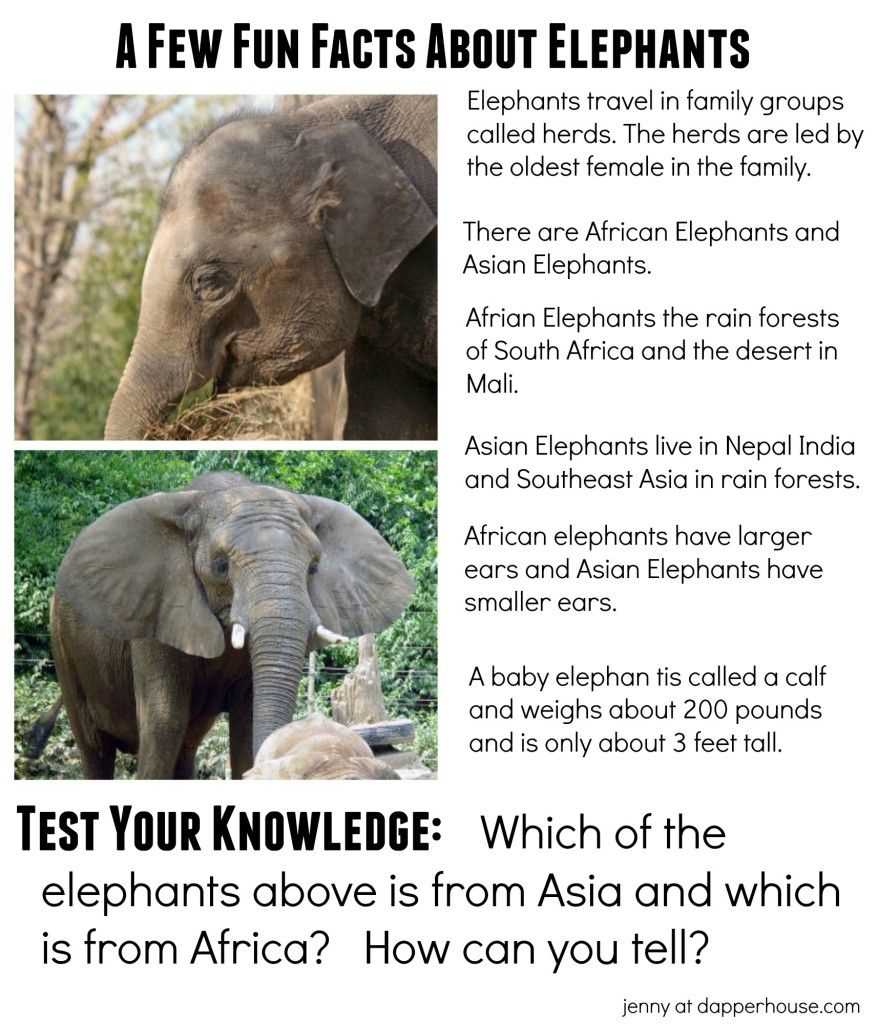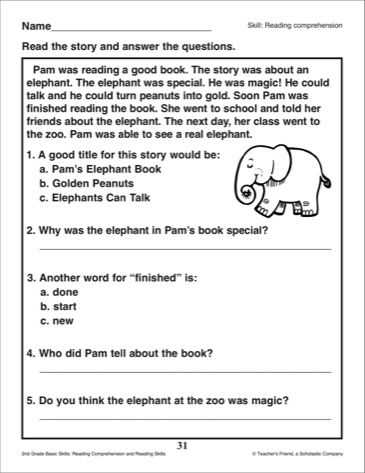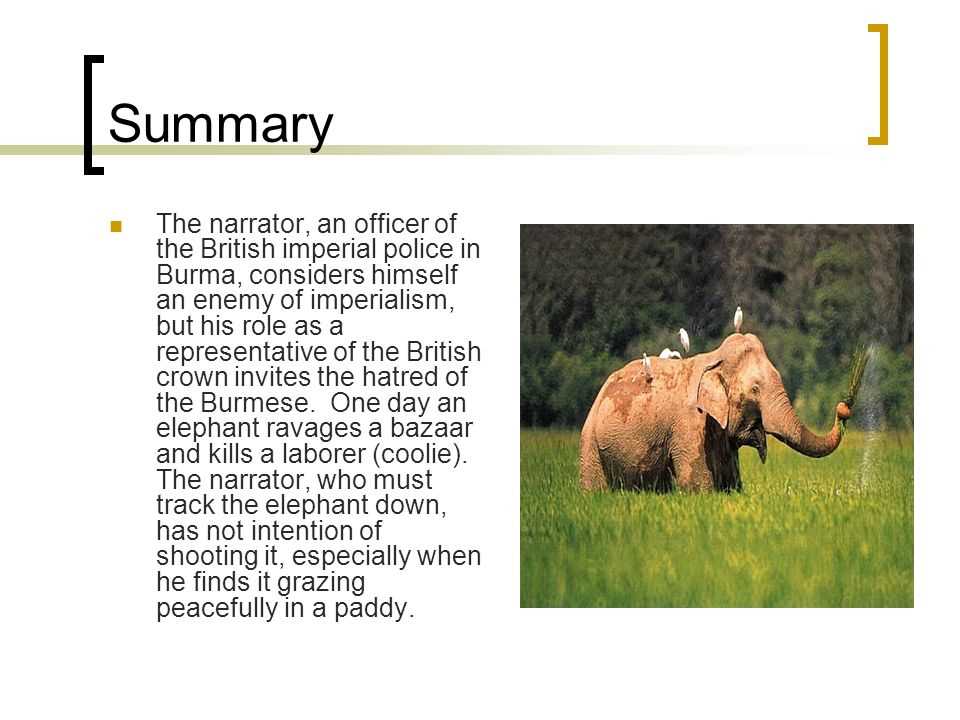
In George Orwell’s thought-provoking essay “Shooting an Elephant,” the author delves into the complexities of imperialism and moral dilemmas. With his vivid descriptions and introspective narrative, Orwell presents the readers with a unique perspective on power, duty, and the consequences of colonialism. As readers dive into the text, many questions may arise, and this article aims to provide answers to some of those questions by exploring key points and offering explanations.
One of the central themes in “Shooting an Elephant” is the conflict between personal morality and social expectations. Orwell narrates a situation where he is faced with the task of shooting an allegedly rampaging elephant. Though he does not want to harm the creature, he feels compelled to act due to the pressure of the local crowd. This raises the question of whether individuals should sacrifice their personal beliefs to conform to societal norms and expectations.
Another important question the essay raises is the role of power in shaping individuals’ behavior and decisions. Orwell, as a police officer in colonial Burma, is in a position of authority. However, rather than feeling empowered, he describes a sense of powerlessness and being trapped in a system that goes against his own beliefs. This leads readers to contemplate the effects of power dynamics and how they can shape one’s actions and moral compass.
Moreover, “Shooting an Elephant” invites readers to question the nature of imperialism and its impact on both the colonizers and the colonized. Orwell recounts the animosity between the British imperialists and the local Burmese population, highlighting the tensions and resentments that arise from such imbalanced power dynamics. This prompts readers to reflect on the consequences of imperialism, the notion of “the white man’s burden,” and the exploitation of indigenous cultures.
In conclusion, “Shooting an Elephant” offers a thought-provoking exploration of imperialism, power dynamics, and the moral dilemmas that arise from societal expectations. Through answering key questions and providing explanations, readers can delve deeper into Orwell’s rich narrative and ponder the complexities of human behavior and the consequences of imperialism.
Overview of “Shooting an Elephant”

“Shooting an Elephant” is an essay written by George Orwell that explores themes of imperialism, identity, and the moral dilemmas faced by colonizers in British-ruled India. The essay is based on Orwell’s personal experience as a colonial police officer and his internal struggle with the oppressive nature of imperialism.
In the essay, Orwell recounts an incident where he was called upon to shoot an elephant that had gone rogue and was causing destruction in a village. Despite his initial reluctance, Orwell feels compelled to shoot the elephant due to the pressure from the local crowd. This act becomes a metaphor for the larger issue of British imperialism and the oppressive power dynamics at play.
In “Shooting an Elephant,” Orwell grapples with his own identity as a British officer in a colonized nation. He feels trapped between the expectations and demands of the native population, who view him as a symbol of authority, and his own moral compass, which tells him that killing the elephant is wrong.
The essay raises broader questions about the nature of imperialism and the impact it has on both the colonizers and the colonized. Orwell vividly describes the oppressive atmosphere of British rule in India and the ways in which it dehumanizes both the rulers and the ruled.
- Key Themes:
- Imperialism: The essay explores the effects of British imperialism on both the colonizers and the colonized. It highlights the oppressive nature of colonial rule and the moral dilemmas faced by those in positions of power.
- Identity: Orwell grapples with his own identity as a British officer in India. He is torn between the expectations of the native population and his own moral compass.
- Moral Dilemmas: The essay raises questions about the moral dilemmas faced by colonizers. Orwell’s decision to shoot the elephant is driven by societal pressure rather than his own convictions.
“Shooting an Elephant” is a powerful essay that delves into the complexities of imperialism and the moral struggles faced by those in positions of power. Orwell’s candid account of his own experiences provides insight into the oppressive nature of colonial rule and the inner conflicts it creates.
Summary of the plot and main themes

“Shooting an Elephant” by George Orwell is a narrative essay that recounts an incident from Orwell’s time as a British police officer in Burma. The story follows the internal struggle Orwell experiences when faced with the dilemma of having to shoot an elephant that has become a menace in a local village. Through his vivid descriptions and personal reflections, Orwell explores themes of power, imperialism, and the morality of colonial rule.
Plot Summary
The story begins with Orwell describing the tense atmosphere in Burma, where the local population resents British colonial rule. As a police officer, Orwell is often met with hostility from the Burmese people, making him feel like an outsider in his own post. One day, he receives a call about an elephant that has gone rogue and is wreaking havoc in a nearby village. Despite feeling ambivalent about the situation, Orwell feels compelled to respond due to the expectations placed upon him as a representative of the British Empire.
When Orwell arrives at the scene, he realizes that the elephant has calmed down and is no longer a threat. However, he also realizes that there is a crowd of Burmese people watching him, eager to see him enforce British authority. Feeling pressured to assert his power, Orwell decides to shoot the elephant. As he prepares to pull the trigger, he starts to question the morality of his actions and the larger implications of his role as a colonial enforcer.
After shooting the elephant, Orwell is filled with conflicting emotions. He realizes that he has killed an innocent creature to uphold a colonial system that he himself disagrees with. Furthermore, he becomes acutely aware of the resentment and anger he has stirred among the local population. The story ends with Orwell reflecting on the nature of imperialism and questioning the inherent violence and injustice that lies at its core.
Main Themes

- Power and Oppression: The story explores the complex dynamics of power and oppression, with Orwell being both an oppressor as a representative of the British Empire and oppressed by the expectations placed upon him.
- Imperialism and Colonialism: The narrative sheds light on the negative consequences of imperialism and colonial rule, highlighting the dehumanizing effects it has on both the colonizers and the colonized.
- Morality and Ethical Dilemmas: Orwell wrestles with the moral implications of his actions, questioning the justifiability of using violence to maintain control and the ethical boundaries of his role as a colonial enforcer.
- The Nature of Power: Through Orwell’s experiences, the story examines the nature of power and the ways in which it can corrupt individuals and societies, ultimately leading to violence and injustice.
Discussion of key questions raised in the story
The story “Shooting an Elephant” by George Orwell raises several key questions about power, morality, and the consequences of colonialism. These questions force the reader to confront the complex and often conflicting emotions and actions of the narrator, who is an officer of the British Empire in Burma.
1. What is the nature of power?
In the story, the narrator grapples with the power he holds as a representative of the British Empire. He acknowledges that his actions are influenced by the expectations and opinions of others, which highlights the dual nature of power: it can be both oppressive and constraining. The narrator’s decision to shoot the elephant is driven by the pressure to maintain his position of authority, even though he personally opposes the act.
2. What are the moral implications of colonialism?
The story presents a stark portrayal of the moral complexities that arise from the colonial enterprise. The narrator finds himself caught between his personal disgust for the cruelty of imperialism and his duty to uphold it. This raises important questions about the moral responsibility of those who perpetrate or participate in oppressive systems. The killing of the elephant becomes a metaphor for the violent and destructive consequences of colonial rule.
- 3. How does this story challenge our understanding of identity and conformity?
The narrator’s struggle with his own identity and desire to conform to societal expectations is a central theme in the story. He is torn between his personal beliefs and the need to maintain a certain image in front of the Burmese people. This raises questions about the complex relationship between identity and conformity, and the ways in which individuals are shaped and constrained by the societies in which they live.
Overall, “Shooting an Elephant” prompts us to reflect on the nature of power, the moral implications of colonialism, and the challenges of maintaining personal integrity in the face of societal pressure. It forces us to question our own actions and the systems in which we participate, and serves as a stark reminder of the often devastating consequences of unchecked power and oppression.
The Central Conflict in “Shooting an Elephant”
In George Orwell’s essay “Shooting an Elephant,” the central conflict revolves around the narrator’s internal struggle between his personal moral beliefs and the social expectations imposed on him as a colonial police officer in Burma. The narrator, who represents Orwell himself, is faced with the dilemma of having to shoot an elephant that has run amok and is causing destruction in a local village.
On one hand, the narrator feels sympathy and compassion for the elephant, recognizing its innocence and understanding that it is only acting out of fear and confusion. However, on the other hand, the narrator is aware of the pressure and expectations from the Burmese people who view him as a representative of the oppressive British Empire. He is torn between his personal beliefs and the need to fulfill his role as an authority figure.
The conflict deepens as the narrator realizes that he is not shooting the elephant because it poses an immediate threat, but rather to avoid looking foolish and weak in front of the crowd. He is conscious of the power dynamics at play, where the Burmese people are watching his every move, eager to see him assert his authority. This internal conflict ultimately leads the narrator to reluctantly, and with great guilt, shoot the elephant.
The essay explores the themes of imperialism, guilt, and the corrupting nature of power. Through the central conflict, Orwell highlights the moral dilemma faced by individuals caught in oppressive systems. The narrator’s struggle serves as a critique of both the British Empire and the Burmese people, exposing the inherent contradictions and injustices of colonialism.
The Nature of Power in “Shooting an Elephant”
In George Orwell’s essay “Shooting an Elephant,” the author explores the complex nature of power and its effects on both the oppressor and the oppressed. Through his narrative of being a colonial police officer in British India, Orwell reveals the inherent contradictions and moral dilemmas that arise when individuals are bestowed with power.
One of the key aspects of power that the story highlights is its ability to corrupt and dehumanize those who possess it. Orwell describes how, as a representative of British imperialism, he is forced to conform to the expectations of his role and suppress his own personal beliefs and values. The pressure to maintain control and authority over the local population leads Orwell to resent the people he is meant to serve, ultimately eroding his sense of compassion and empathy.
Furthermore, the story emphasizes how power is often used as a tool of oppression and control. Orwell is tasked with the responsibility of maintaining law and order in a country that he views as being unfairly subjugated. However, he realizes that his role as a police officer is not only about upholding justice but also about maintaining the dominance of the British Empire. The shooting of the elephant becomes a symbolic act of asserting power and supremacy, illustrating the destructive consequences of imperialism on both the oppressor and the oppressed.
Overall, “Shooting an Elephant” portrays power as a corrupting force that perpetuates injustice and devalues the humanity of both the powerful and the powerless. The story serves as a reminder that power, when misused or misdirected, can have detrimental effects and cause individuals to compromise their own moral principles. Orwell’s narrative challenges the notion that power is inherently beneficial or just, shedding light on the complex dynamics that exist within structures of authority.
How does Orwell explore the theme of imperialism?
In “Shooting an Elephant,” George Orwell effectively explores the theme of imperialism through various literary techniques and narrative elements. Through his personal experience as a British police officer in colonial Burma, Orwell presents a complex and nuanced portrayal of the effects of imperialism on both the colonizers and the colonized.
One way Orwell explores the theme of imperialism is through the use of vivid descriptive language. For example, he describes the town of Moulmein as a “desolate town” with “decaying wooden stalls” and “crumbling brickwork.” This imagery not only emphasizes the physical decay caused by imperialism, but also suggests the moral decay and corruption that accompany the exercise of power.
Furthermore, Orwell explores the theme of imperialism through the character of the elephant. The elephant, which symbolizes both the oppressed Burmese people and the oppressive British Empire, serves as a powerful metaphor for the destructive force of imperialism. The internal conflict Orwell experiences when deciding whether to shoot the elephant reflects the moral dilemma faced by those who participate in or benefit from imperialism.
Orwell also explores the theme of imperialism through the narrative structure of the story. By framing the narrative as a flashback, with the protagonist reflecting on his actions in retrospect, Orwell demonstrates the lasting impact of imperialism on both individuals and society as a whole. The remorse and guilt that Orwell feels for shooting the elephant symbolize the psychological burden carried by those who engage in imperialistic practices.
In conclusion, George Orwell explores the theme of imperialism in “Shooting an Elephant” through vivid descriptive language, symbolic imagery, and narrative structure. Through these literary techniques, Orwell offers a nuanced and thought-provoking examination of the effects of imperialism on the human psyche and society at large.